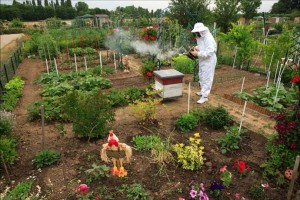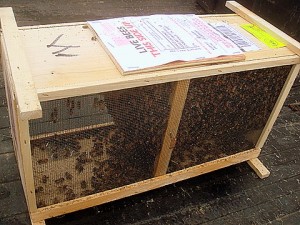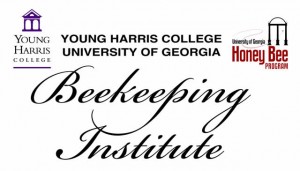Gardeners who don’t keep bees? Seems odd to me. It’s like being a gardener who doesn’t compost, peanut butter without jelly, Laurel without Hardy, …… You get the idea.
I am often asked: How much trouble is it to keep honey bees? Not much trouble at all I say. But just like being a good owner of any garden or livestock, we want to be the best steward we can of the life entrusted to our care.
“Being a good beekeeper starts with having good stock.”
If you start off with bad bees, you will have a lot of extra trouble. Bad bees are sickly, ornery, and don’t produce enough honey to share. Good bees are healthy, happy, and a pleasure to work with.
“So where do I find these good bees?” you say. Well, you can collect a swarm in the spring. You could get your bees from some beekeeper who wants to get out of beekeeping (who probably started off with those bad bees). You could order a small nucleus colony from the Georgia Market Bulletin published by the Agriculture department. But I recommend that you start off with bees from one of the largest and best known suppliers of honey bees, Wilbanks Apiaries.
Wilbanks is located in Claxton, Georgia. They have over 60,000 colonies in several counties. Wilbanks bees arrive with a stamp from the agriculture department attesting to their having been inspected. Their bees are gentle, healthy, and produce a lot of honey. These happy bees are a pleasure to work with.
So why do I need to order bees now? The answer is simple. There are only a certain amount of bees available in any given year. Once the orders are filled you are out of luck.
So when will I get my bees? In Georgia bees are at their highest numbers in May. Your bees will be gathered and shipped in mid May.
What should I order? It is best to start off with a three pound package of bees. Three pounds is about 5,000 bees. This is plenty to get you started. Bees and shipping will cost you about $75. Expect a phone call from the post office early one morning: “Uh, hello…Can you please come get these bees?”
Your bees will arrive in a screened box with a queen and some food (sugar water). You should have your bee hive ready to install the bees that day.
Where do I get a beehive? How do I install the bees? How do I care for the bees? What do I feed the bees? How do I harvest the honey? All these and more questions will be answered at the Garden Show in mid February. I hope to see you there.
In the mean time, please visit some beekeeping suppliers. I will have their catalogs available at the garden show.
You should also pay a visit to the National Honey Board website for all kinds of neat information.
To prepare for your beekeeping adventure you should consider obtaining a copy of “Honey Bees & Beekeeping: A Year in the Life of an Apiary”, by Dr. Keith Delaplane who is the head of the University of Georgia Beekeeping Program. You should get the DVD that goes with the book also which is available at the suppliers listed above.
The best beekeeping training available is at the Young Harris Beekeeping Institute, May 12-14, 2011. But you will want to sign up now to reserve your seat. The institute fills up quickly.
If you have any questions about this article or beekeeping, please send me an e-mail, beekeepingquestions@gmail.com.




